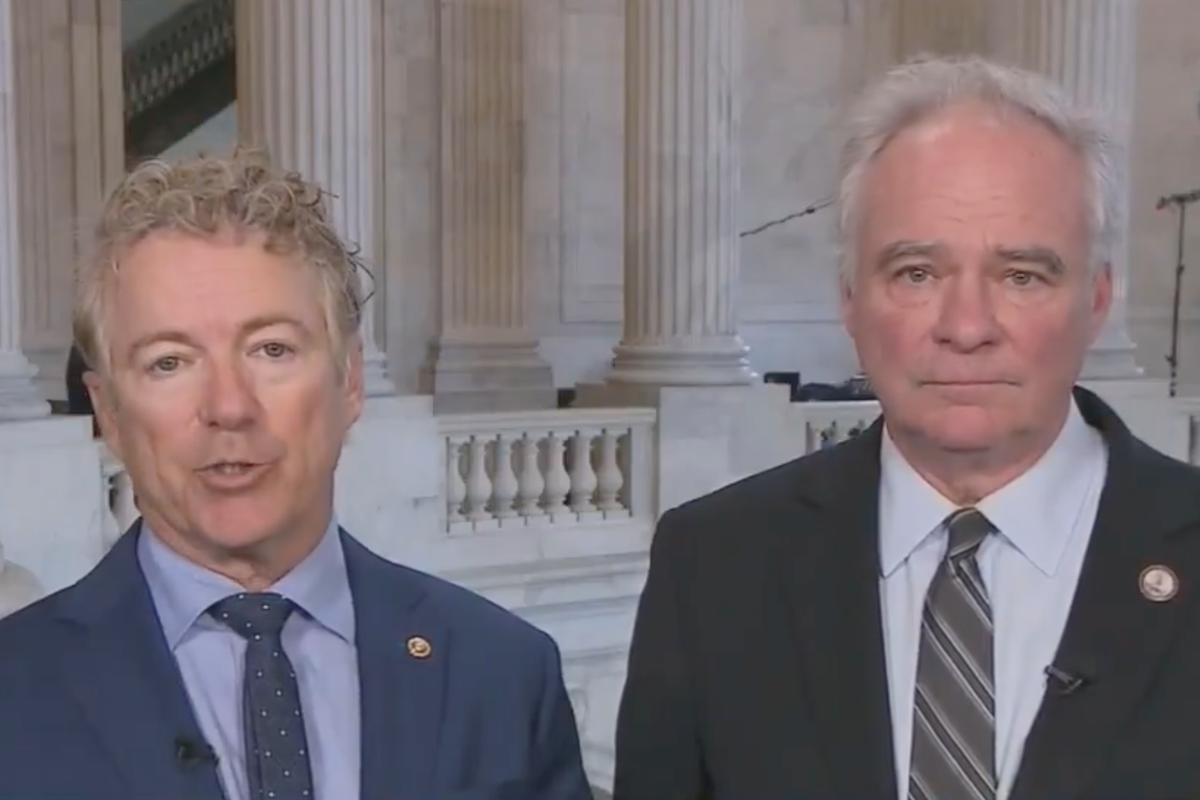
Rand Paul's Warning: Tariffs Could Harm Republican Party Again
Senator Rand Paul has once again expressed his concerns about the potential harm tariffs could cause to the Republican Party's political standing. As a prominent figure in the GOP and a staunch advocate for free markets, Paul has consistently voiced his opposition to the imposition of tariffs. As the political landscape shifts, his warnings carry significant weight regarding the party's future.
The Roots of Republican Tariff Policy
Historically, Republican economic policy has navigated towards free trade and open markets. This approach was defined by previous GOP-led administrations aiming to decrease barriers and enhance economic growth. However, the tide shifted during the Trump administration, where policies introduced tariffs on various goods.
These tariffs were presented as measures to protect American industries and address trade imbalances. While they garnered support from some quarters, they also faced criticism both domestically and internationally.
Rand Paul’s Opposition to Tariffs
Rand Paul stands firm in his belief that tariffs are essentially taxes imposed on consumers. He argues that these taxes disrupt the free market principle, a core Republican value. In Paul's view, tariffs increase the cost of goods for American buyers, effectively acting as a hidden tax burden.
Paul has highlighted that while tariffs intend to bolster domestic production, they can hurt American families by increasing prices. He advocates for a policy approach that encourages innovation and competition, favoring market-driven solutions over government-imposed tariffs.
Impact on American Consumers and Businesses
The imposition of tariffs can have widespread implications. Businesses across various sectors may face increased costs for raw materials, leading to higher prices for consumers. This trickle-down effect can pinch the wallets of everyday Americans, counteracting any protections intended for domestic industries.
Furthermore, trade partners impacted by U.S. tariffs may retaliate with their tariffs, escalating into trade disputes. This not only affects American businesses looking to export but also has broader implications for international trade relationships and economic growth.
Political Ramifications for the GOP
With upcoming elections in mind, Rand Paul’s concerns are not only economic but deeply political. The Republican Party has traditionally aligned itself with the ideals of free enterprise and minimal government intervention. However, continued support for tariffs could be seen as a departure from these principles, potentially alienating a key voter base that values economic freedom.
Paul's cautionary stance underscores the importance of reconciling internal party divisions over tariffs. An imbalance could impact not only the party's economic credibility but also its electoral prospects, as voters demand policies aligned with traditional Republican values.
The Trump Factor
President Donald Trump's influence on the Republican Party's economic stance cannot be understated. His administration's tariff policies marked a significant shift from established norms, justifying them as a means to negotiate better trade deals. Despite their controversial nature, these policies resonated with parts of the electorate who saw them as protective measures for American jobs.
Rand Paul's challenge lies in navigating the Trump legacy while advocating for a return to free-market principles. With Trump remaining a political force, any shift away from his policies might face resistance from within the party ranks.
Balancing Economic and Political Realities
While tariffs are a critical talking point, they form part of a broader debate on Republican economic priorities. As global economic pressures evolve, the GOP must weigh its commitment to free trade against emerging protectionist sentiments.
Rand Paul suggests that striking a balance is essential. The party's ability to articulate a coherent economic vision that respects free markets while addressing legitimate domestic concerns will prove pivotal. This approach can prevent alienating supporters who have been adversely affected by certain policies.
Moving Towards a Cohesive Economic Strategy
To secure a robust political future, the Republican Party may need to recalibrate its stance on tariffs. Engaging in internal discussions and gathering diverse viewpoints can help the GOP forge a path that aligns with its foundational beliefs while responding to contemporary challenges.
Rand Paul's warning serves as a timely reminder for the need for introspection and adaptation. As the political landscape shifts, the party's ability to evolve while staying true to its principles will determine its continued relevance and success.
Conclusion
Rand Paul's cautionary message regarding tariffs is rooted in a long-held belief in the power of free markets. As the Republican Party grapples with these economic policies, understanding the short and long-term impacts is crucial. Balancing tariffs with the party's core ideals will be key to maintaining its political viability.
Ultimately, the debate over tariffs is a microcosm of the broader challenges confronting the GOP. The party's ability to navigate these issues while unifying its base around consistent economic principles will shape its trajectory in the coming years.


